-
Contact
Sales & Customer Service
0800 612 6537 support@safelincs.co.uk Live ChatDelivery Enquiries
0800 077 6149 - Resources
Fire & Safety Solutions
CALL OUR TEAM NOW 0800 612 6537
Also FREE from UK mobiles
Free Delivery
on 100s of Products
Live Chat - Online
Instant help & Advice
Trade Discounts
and exclusive pricing
0% Credit Available
Open an account now
5 Star Customer Feedback
Caravan Fire Safety Tips
A caravan or mobile home fire can be serious and have disastrous consequences for you, any occupants and your belongings. There are on average 360 reported fires in caravans and mobile homes each year, due to their construction they offer little protection to stop the fire from spreading. By being aware of the potential dangers and following a few simple steps you can reduce those risks.
Siting the Caravan
The caravan should be positioned at least six metres away from others, lowering the risk of fire spreading to other units. A fire can happen at any time of day or night, if you are on a caravan site get to know where the firefighting equipment is located, familiarise yourself with it and know your quickest route to it. Ideally your caravan should be no more than 2 meters from a site road and 50 meters from a public road, enabling the emergency services to reach you in the quickest possible time.
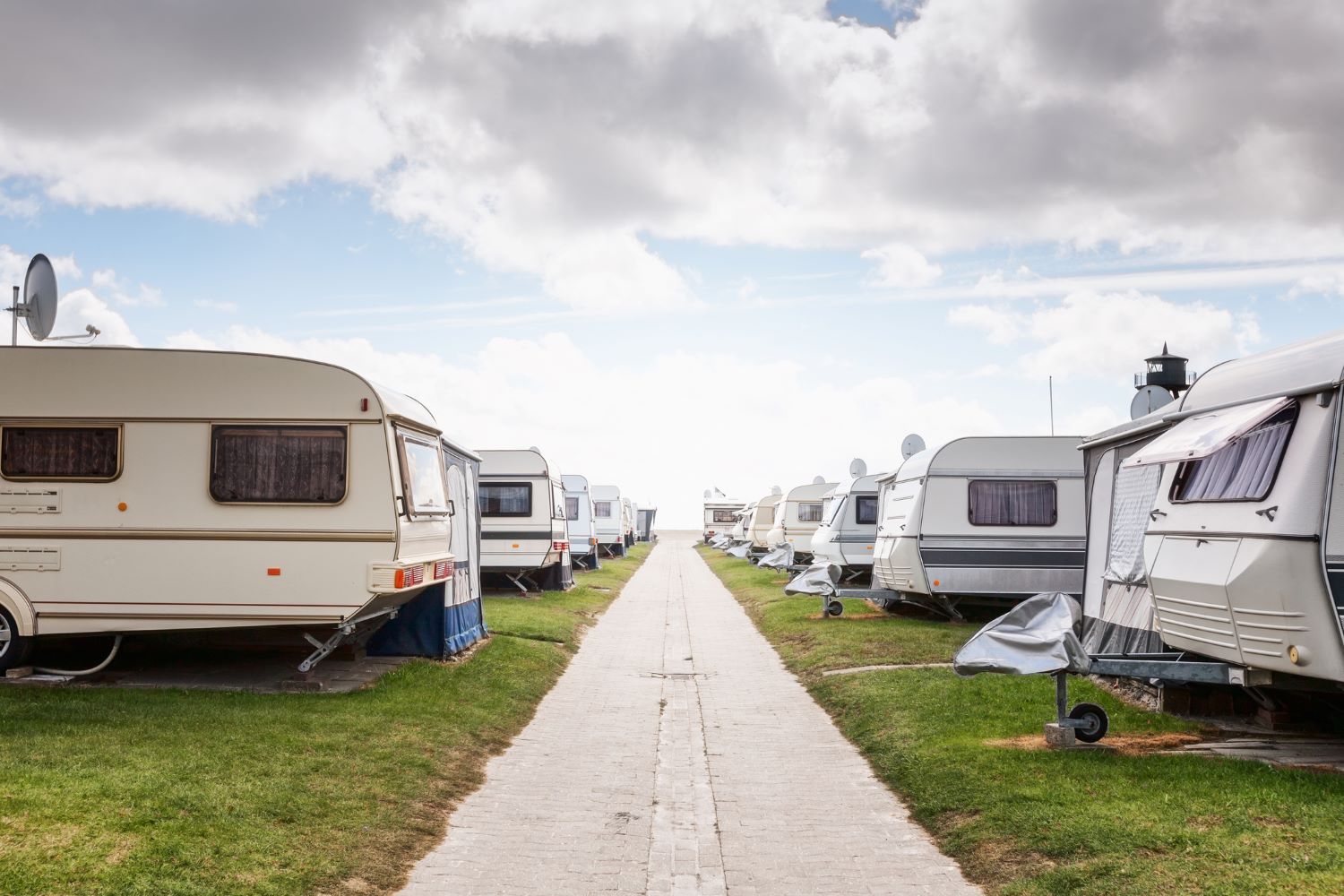
Fire Extinguishers for Caravans
Having a fire extinguisher will enable you to tackle a small fire and can minimise the risk of a fire spreading and getting out of hand. Ensure that everyone knows how to use the extinguisher and how to raise the alarm in the event of a fire. We would recommend a water mist extinguisher as it will tackle most small fires, including fires involving electrical equipment; such as toasters, kettles and heaters.
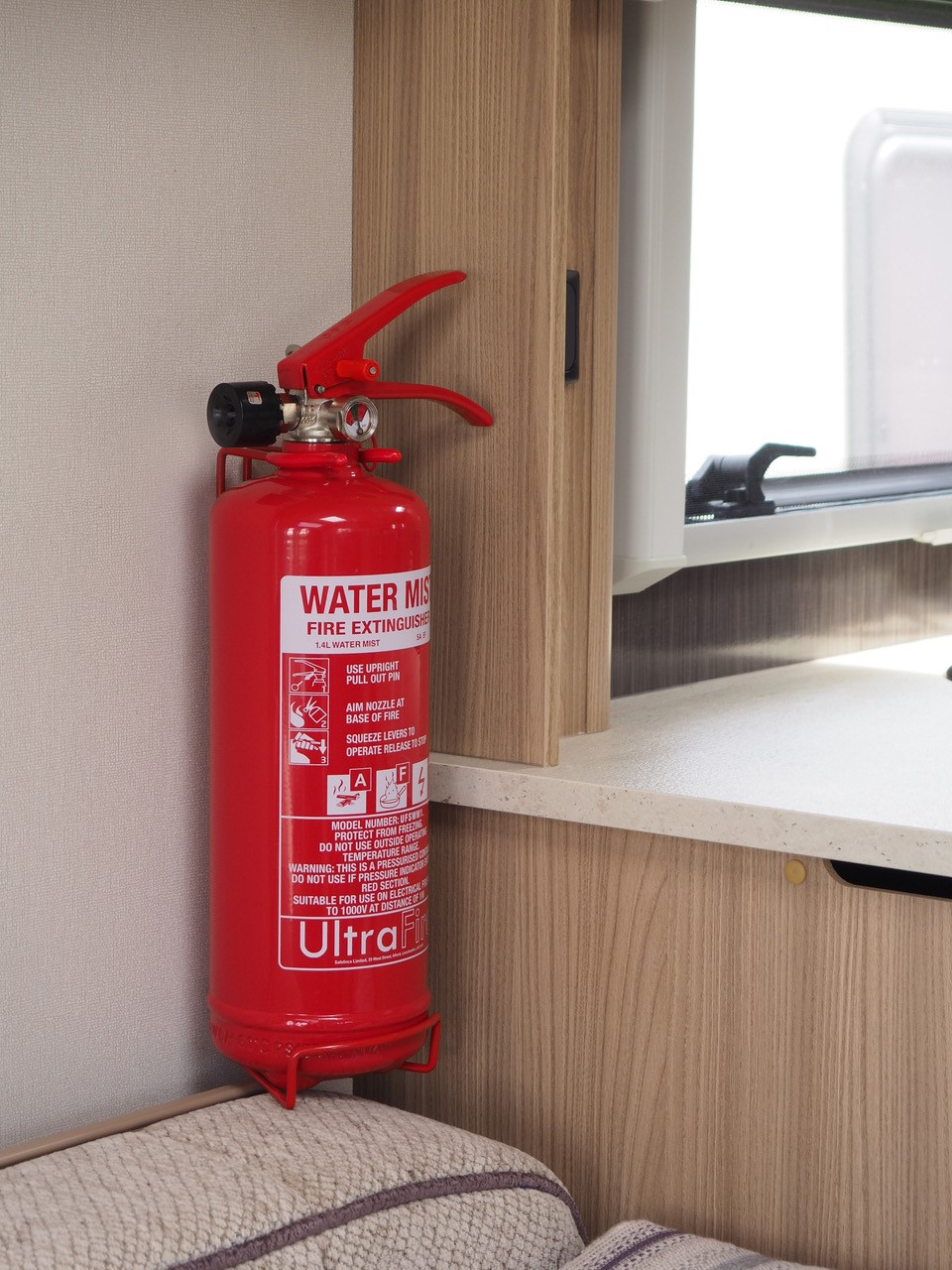
 Check the fire extinguisher is located near an exit door and the pressure gauge is in the green.
Check the fire extinguisher is located near an exit door and the pressure gauge is in the green.
Smoke Alarms for Caravans
Installing a smoke alarm in your caravan will alert you and other occupants to the fire, enabling them to escape to safety. We recommend an optical smoke alarm to be fitted in a caravan or a mobile home as they are designed to react quickly to smouldering fires, such as from soft furnishings. You will need an optical smoke alarm that is suitable for use in caravans, look out for alarms certified to BS EN 14604:2005.
If you are not using the caravan all year round, we would recommend removing your smoke alarm from your caravan for this period, as the battery may be affected by damp conditions. We recommend you add fitting your alarm at the beginning of the camping season to your pre-camping checklist.
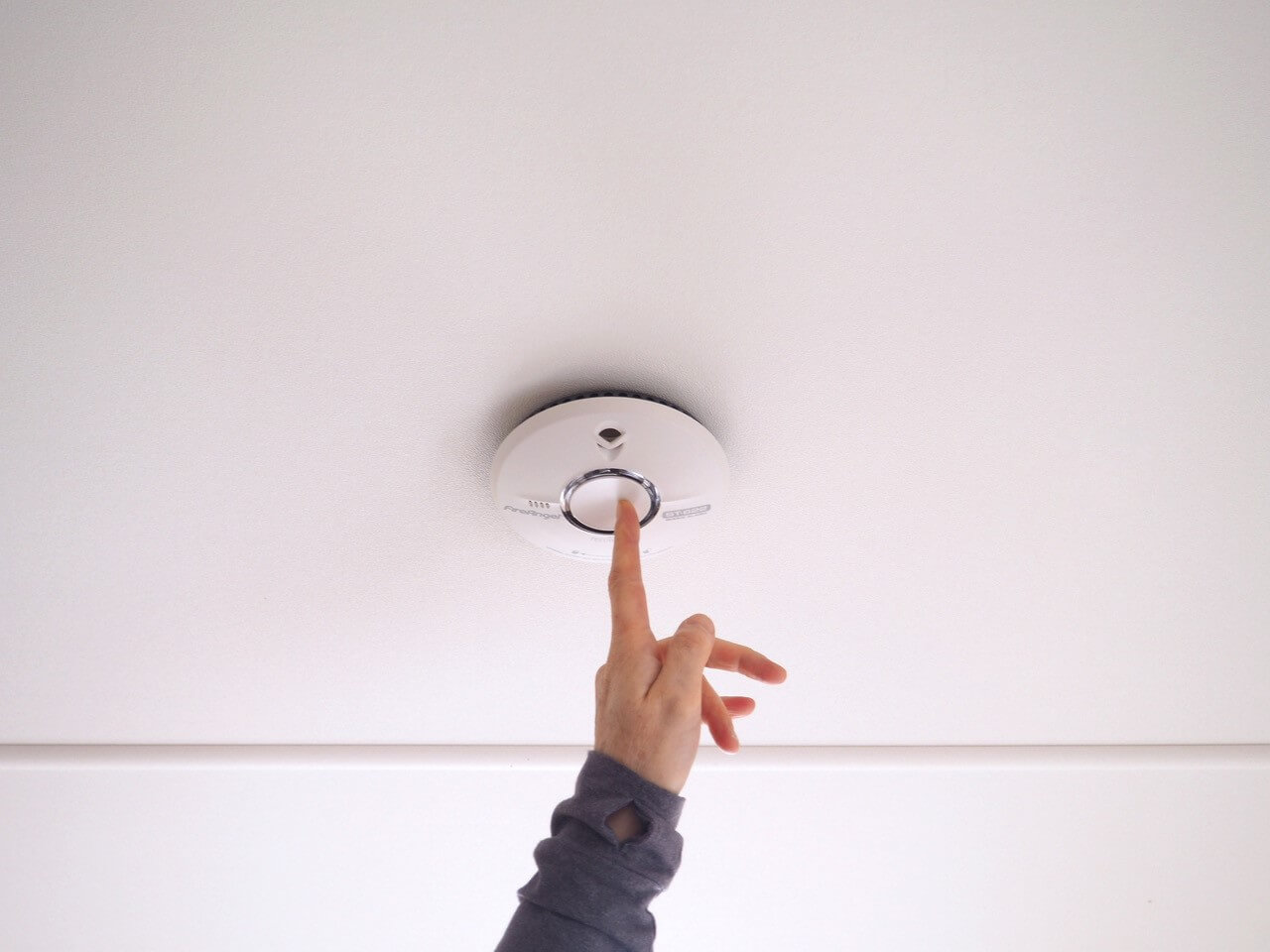
 Check the smoke alarm is present and working by pressing the test button.
Check the smoke alarm is present and working by pressing the test button.
Carbon Monoxide Alarms for Caravans
Carbon monoxide (CO) has no colour, taste or smell and is known as the 'silent killer'. A carbon monoxide alarm detects toxic gases produced by incomplete combustion of fossil fuels (gas, oil, coal and wood). All fossil fuel appliances, including cookers and other equipment that run off bottled gas should be serviced annually. Vents and flues should never be blocked, ensuring that air can circulate around the caravan.
CO can be fatal and the only way to detect it is with a CO alarm. As with smoke alarms, ensure that your CO alarm is suitable for caravans, camping and boats and is certified to BS EN50291-2.
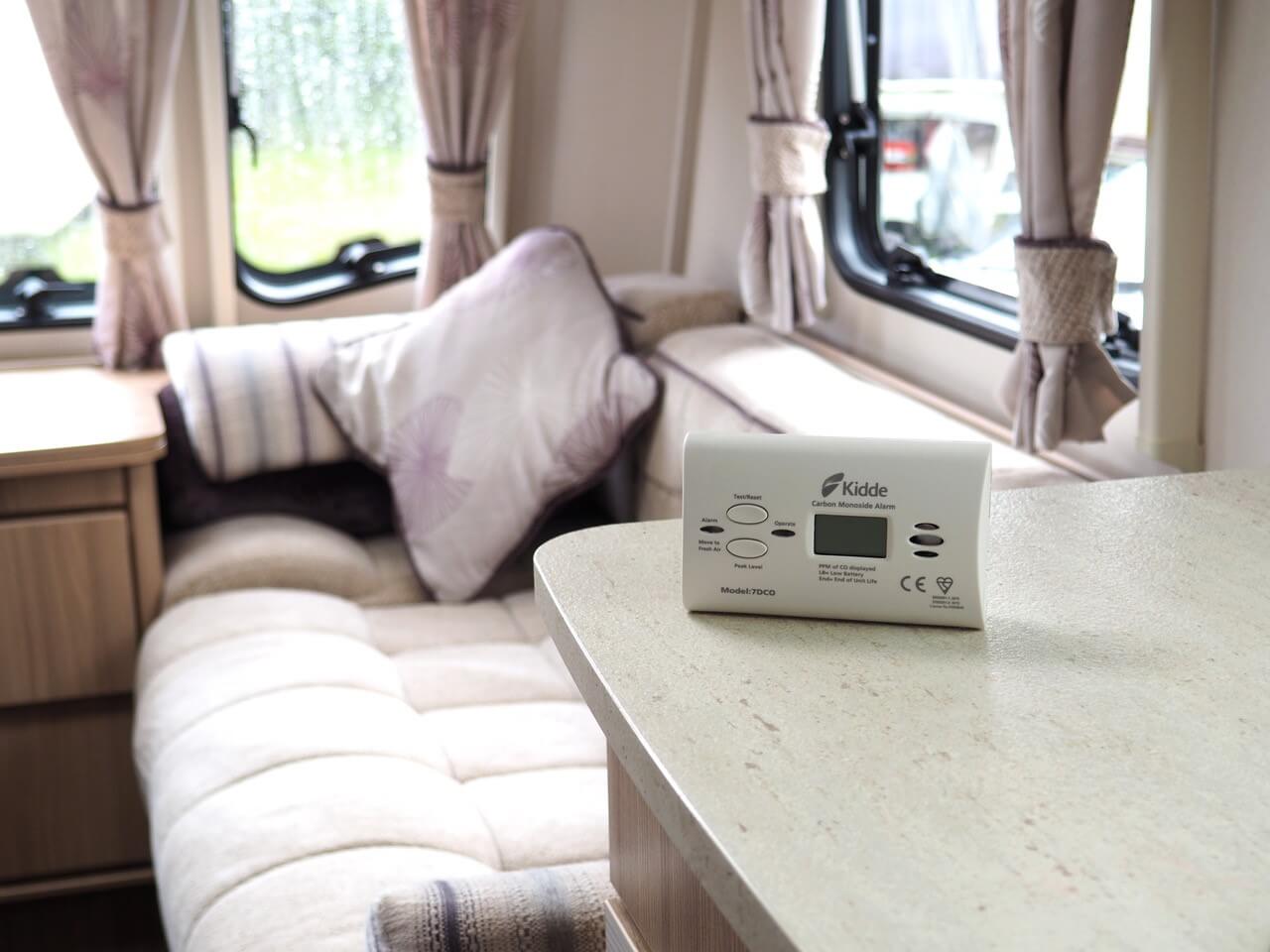
 Check there is a CO alarm present and working by pressing the test button.
Check there is a CO alarm present and working by pressing the test button.
Cooking Safety
When cooking in your caravan, it is important that you never leave your cooker unattended, especially when children or pets are present. Turn the pan handles away from the edge of the cooker to reduce the risk of the pan being knocked off.
Make sure you have a fire blanket in your kitchen area, especially if you have a chip pan. Check your fire blanket regularly to ensure it is still fit for purpose and has no signs of wear and tear.
Ensure that there are no curtains, towels or other combustible materials hanging down near your cooker. Keep worktops near cooking equipment free from paper and other sources of fuel.
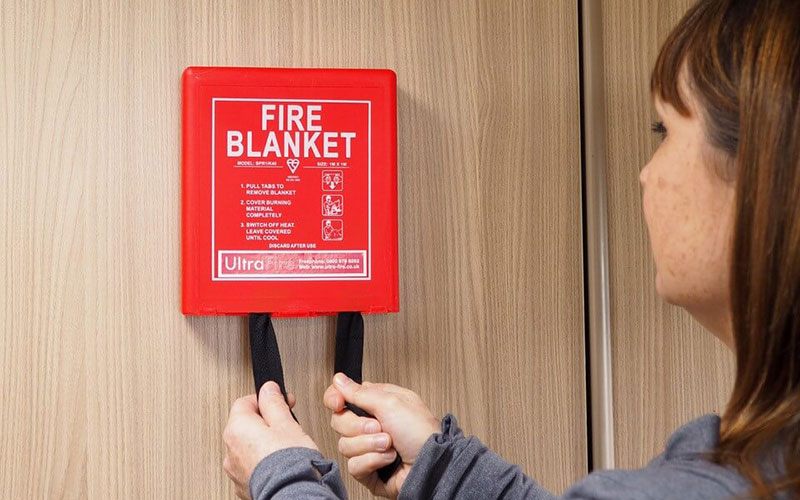
 Check the fire blanket is located near the cooker.
Check the fire blanket is located near the cooker.
Electrical Appliances & Safety
Check appliances in your caravan or mobile home to ensure electrical wiring is in good order. Ideally, they should be tested regularly by a qualified electrician. Never use equipment that has damaged plugs or cables. Always ensure that your cables are not wedged under heavy objects, this could damage the internal wiring and cause a fire.
Make sure all heaters, cookers and TV sets are switched off last thing at night or when leaving your caravan. Never block heaters as they can cause a fire.
Do not overload electrical sockets and avoid using multi-adaptors. If you need to use extension cables ensure that they are fully extended, if they are rolled or knotted this can cause them to overheat.
Gas cylinders should be kept outside the caravan unless a special ventilated compartment is provided.
 Check all visible wiring / extension cables for any wear and tear or if trapped under furniture.
Check all visible wiring / extension cables for any wear and tear or if trapped under furniture.
Escape Routes
Hopefully, you will never need to use it but make sure you have an escape plan if the worst were to happen. Ensure you have a secondary escape in case the main door is blocked by the fire, this may be through a window. Teach everyone staying in your caravan your escape plan and how to open the windows etc. If the window cannot be easily pushed open in an emergency, you may want to install an escape hammer next to the window to break the glass, enabling you to escape.
Make sure you keep door and window keys where they can be easily located. It is good practice to have a break glass hammer in your caravan / mobile home in case of an emergency.
If there is smoke then try and keep as low as possible (below smoke layer) as the air is clearer here. As soon as possible call the fire and rescue service and do not re-enter the caravan. Always keep your exits clear of any trip hazards to ensure a fast and practical escape.
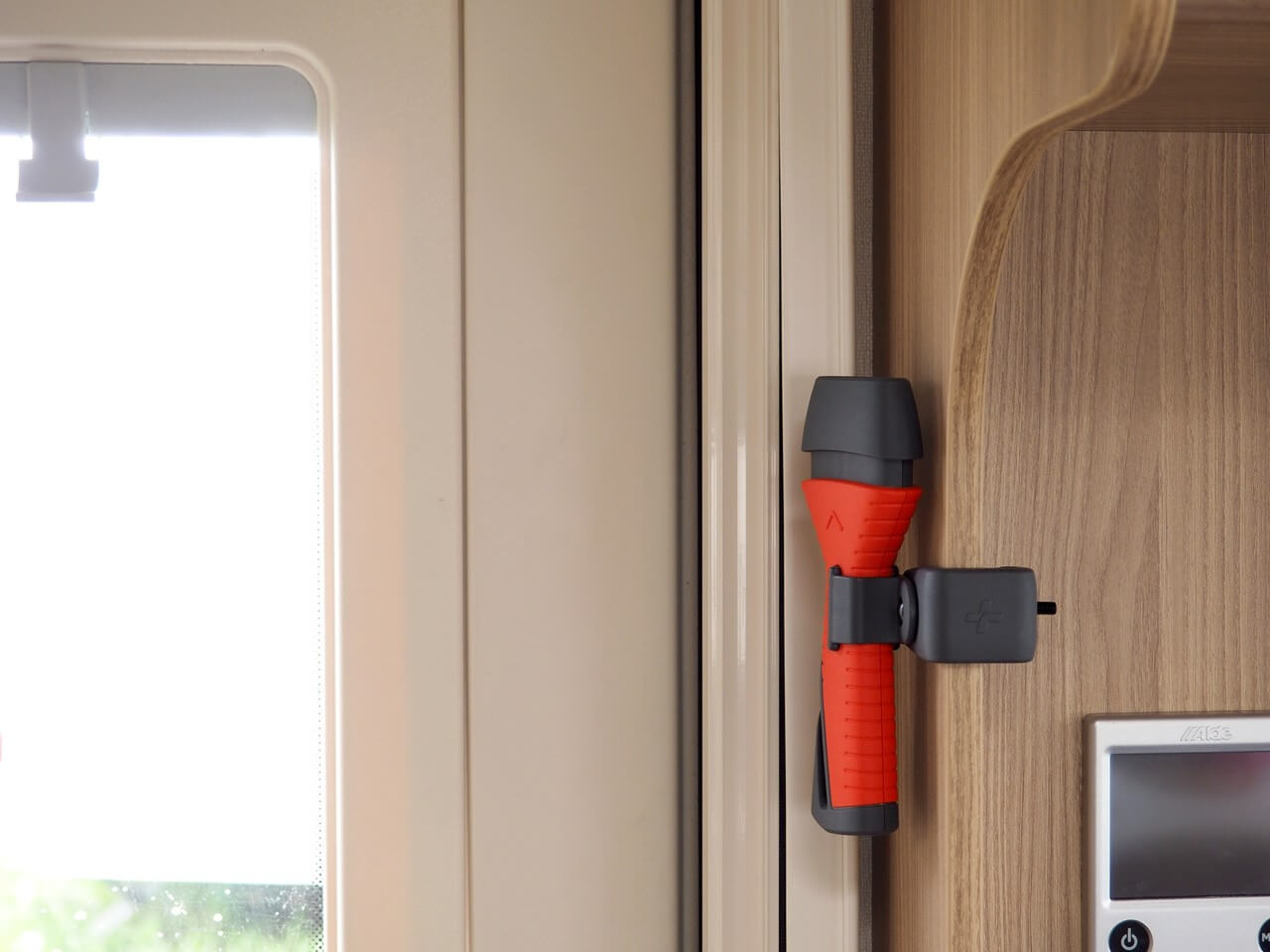
 Check that the emergency hammer/s are located near to exit windows.
Check that the emergency hammer/s are located near to exit windows.
Smoking
Always ensure that cigarettes are extinguished correctly and cannot reignite. Do not use plastic ashtrays as they can melt, use metal or glass. Smoking in your bed is very dangerous, if you happen to fall asleep you could easily set fire to your bedding. Keep matches and lighters out of reach of children.
Renting out your caravan
If you are renting out to paying guests your caravan you will need to have a Fire Risk Assessment carried out or complete one yourself. More information and guidance is available in our Fire Safety for Holiday Lets help guide.
Reviewed: 07/03/2024 (doc:136 V1.2). Our articles are reviewed regularly. However, any changes made to standards or legislation following the review date will not have been considered. Please note that we provide abridged, easy-to-understand guidance. To make detailed decisions about your fire safety provisions, you might require further advice or need to consult the full standards and legislation.



















